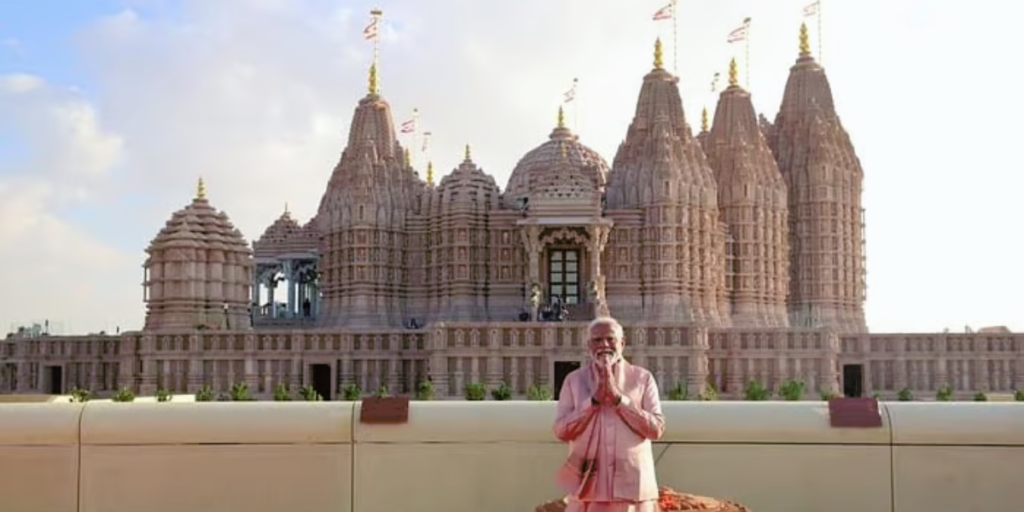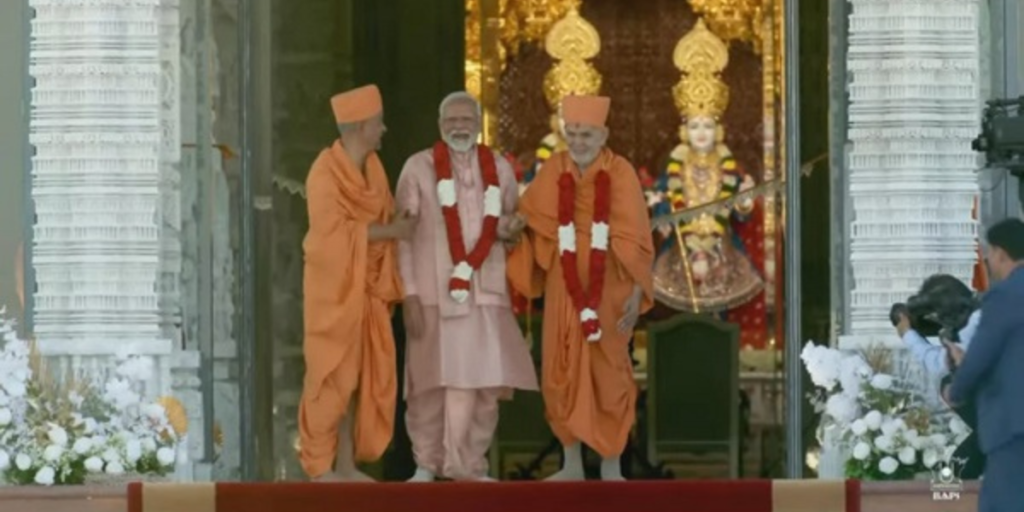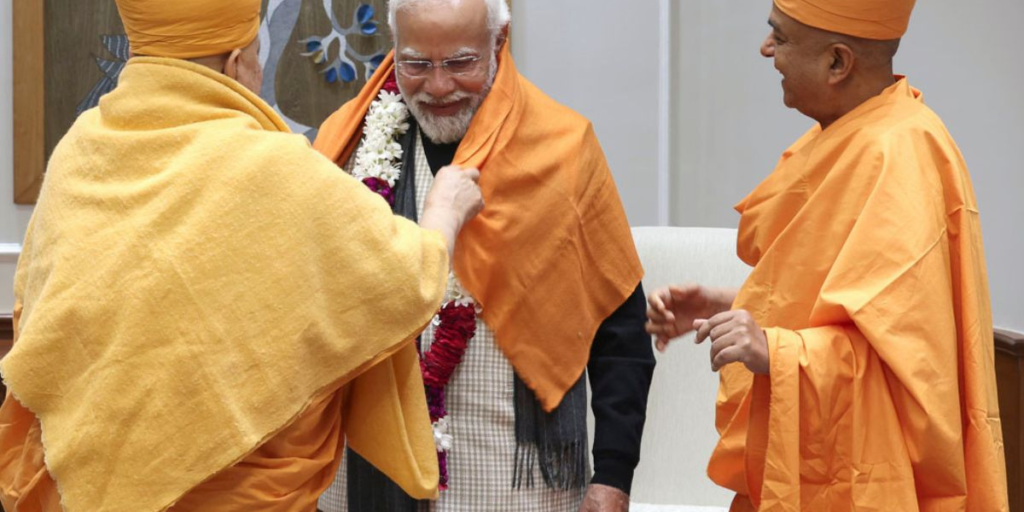Indian Prime Minister Narendra Modi’s recent visit to the Middle East’s first traditional Hindu temple in Abu Dhabi has sparked political discussions and raised questions about the direction of India’s secularism. The inauguration of the BAPS Hindu Temple marks a significant moment in Modi’s reelection campaign and his broader agenda of promoting Hindu nationalism.
Table of Contents
Modi’s Political Strategy
Modi’s visit to the BAPS Hindu Mandir in Abu Dhabi comes at a crucial juncture, as he gears up for the upcoming elections in India. The temple inauguration is seen as a strategic move to internationalize his campaign and rally support among Hindu voters. By embracing the UAE’s president and addressing global leaders at a summit in Dubai, Modi aims to bolster his image both domestically and internationally.
Secular India’s Shift Towards Hindu Nationalism

The trip underscores Modi’s efforts to steer India towards a more Hindu-centric identity, a trend that has raised concerns about the rights of religious minorities, particularly Muslims. The rise of Hindu nationalist groups and the BJP’s policies have fueled apprehensions about the future of India’s secular fabric.
The Significance of Indian Relations
Against the backdrop of growing tensions between Hindu nationalists and Muslims in India, Modi’s outreach to Muslim-led Gulf Arab states holds significant implications. Strengthening ties with countries like the UAE not only ensures India’s energy security but also enhances its diplomatic stature on the global stage.
Hindu Temple Inauguration:
The inauguration of the BAPS Hindu Mandir in Abu Dhabi highlights Modi’s close association with the Bochasanwasi Shri Akshar Purushottam Swaminarayan Sanstha (BAPS) organization. The temple’s construction reflects Modi’s commitment to promoting Hindu heritage, despite controversies surrounding the site’s history and its implications for religious harmony.
Modi’s involvement in the construction of Hindu temples, including the recent inauguration in Abu Dhabi and the Ayodhya temple built on the ruins of a mosque, underscores the intertwining of religion and politics in India. While hailed by Hindu nationalists as a restoration of religious pride, these endeavors have also sparked communal tensions and raised questions about India’s commitment to pluralism.

Global Diplomacy and Economic Interests
Modi’s participation in the World Governments Summit in Dubai underscores India’s growing diplomatic engagement with the Gulf region. The UAE’s status as a key economic partner and home to millions of Indian expatriates underscores the pragmatic dimensions of India’s foreign policy.
Challenges and Opportunities

While Modi’s outreach to the UAE signals a deepening of bilateral ties, it also poses challenges, particularly regarding India’s approach to regional conflicts and human rights issues. Balancing economic interests with diplomatic principles remains a delicate task for the Indian government.
Conclusion

The inauguration of the Hindu temple in Abu Dhabi reflects the intersection of politics, religion, and diplomacy in Modi’s leadership. As India prepares for elections and navigates complex geopolitical dynamics, the symbolism of the temple inauguration reverberates both domestically and internationally, shaping the trajectory of Indian politics and its place in the global arena.
Modi’s engagement with the UAE underscores India’s aspirations for greater influence in the global arena. By participating in international forums and forging alliances with key players in the Middle East, India seeks to assert itself as a formidable geopolitical actor. The temple inauguration, therefore, represents not only a religious milestone but also a strategic move aimed at consolidating India’s position on the world stage and expanding its sphere of influence beyond traditional borders.

However, amid the diplomatic fanfare surrounding Modi’s visit, questions linger about the broader implications of India’s shift towards Hindu nationalism and its impact on domestic and international affairs. While the temple inauguration may rally support among certain segments of the Indian electorate, it also raises concerns about the erosion of India’s secular ethos and the marginalization of religious minorities. As India navigates the complexities of identity politics and global diplomacy, the inauguration of the Hindu temple in the UAE serves as a poignant reminder of the challenges and opportunities inherent in the pursuit of a pluralistic and inclusive society.

